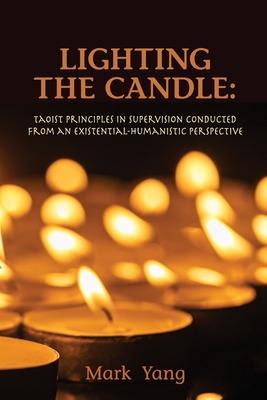Many scholars and practitioners recognize the resonance between the practice of psychotherapy and supervision and the paradoxical principles found throughout Taoism. This is evermore true within the existential-humanistic tradition. Therefore, Lighting the Candle, Taoist Principles in Supervision Conducted from an Existential-Humanistic Perspective introduces readers to the selected writing of the Taoist sages Lao Tzu and Zhuangzi, and considers how their wisdom permeates psychotherapy and supervision practiced from an existential-humanistic perspective. The book takes on a narrative format where the author weaves the following Taoist and existential-humanistic concepts within a number of inspirational stories and supervision case examples gathered across his trainings throughout Southeast Asia. These include wu wei, authenticity, focusing, surrender, trusting the process (trusting the Tao), getting back to the basics, steadiness and the midst of chaos, listening for the unheard, being fully present, humility and awe, bearing witness, following the flow, letting go (of goals, results and techniques), stillness and going nowhere, poetic reflection, and servant leadership. An apprenticeship model of embodied learning is presented in narrative format where the author weaves the above concepts into the supervision process.

Lighting the Candle: Taoist Principles in Supervision Conducted from an Existential-Humanistic Perspective
Many scholars and practitioners recognize the resonance between the practice of psychotherapy and supervision and the paradoxical principles found throughout Taoism. This is evermore true within the existential-humanistic tradition. Therefore, Lighting the Candle, Taoist Principles in Supervision Conducted from an Existential-Humanistic Perspective introduces readers to the selected writing of the Taoist sages Lao Tzu and Zhuangzi, and considers how their wisdom permeates psychotherapy and supervision practiced from an existential-humanistic perspective. The book takes on a narrative format where the author weaves the following Taoist and existential-humanistic concepts within a number of inspirational stories and supervision case examples gathered across his trainings throughout Southeast Asia. These include wu wei, authenticity, focusing, surrender, trusting the process (trusting the Tao), getting back to the basics, steadiness and the midst of chaos, listening for the unheard, being fully present, humility and awe, bearing witness, following the flow, letting go (of goals, results and techniques), stillness and going nowhere, poetic reflection, and servant leadership. An apprenticeship model of embodied learning is presented in narrative format where the author weaves the above concepts into the supervision process.